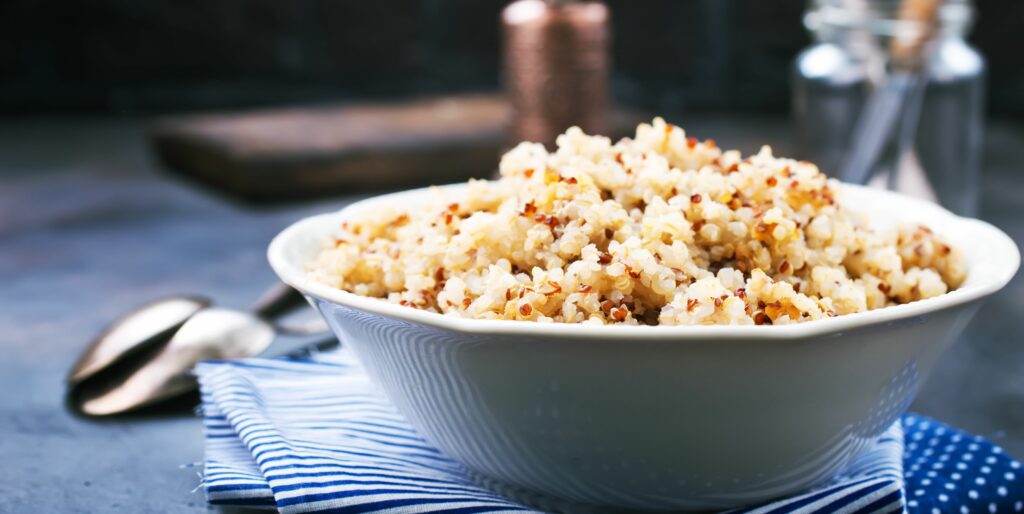Quinoa, a versatile grain-like seed, has gained significant popularity in recent years due to its nutritional value and health benefits. As the awareness of gluten intolerance and celiac disease continues to grow, many individuals are seeking gluten-free alternatives to incorporate into their diets. One of the common questions that arises is whether quinoa is gluten-free. In this comprehensive guide, we will delve into the surprising truth behind quinoa and its gluten-free status.
Understanding Gluten and Celiac Disease
Before we explore the gluten-free nature of quinoa, it is important to understand what gluten is and why it poses a concern for certain individuals. Gluten is a group of proteins found in wheat, barley, rye, and their derivatives. It provides elasticity to dough and helps it maintain its shape. However, for individuals with celiac disease, consuming gluten triggers an autoimmune response that damages the lining of the small intestine. This can lead to various digestive issues, nutrient deficiencies, and long-term health complications.
Quinoa: A Gluten-Free Superfood
Now, let’s address the main question: Is quinoa gluten-free? The answer is yes, quinoa is naturally gluten-free. Unlike wheat, barley, and rye, which contain gluten, quinoa is a seed that does not belong to the grass family, making it a safe choice for individuals with gluten sensitivity or celiac disease.
Quinoa is considered a superfood due to its exceptional nutritional profile. It is a rich source of protein, dietary fiber, vitamins (such as vitamin B, E, and folate), minerals (including iron, magnesium, and phosphorus), and antioxidants. Moreover, quinoa is a complete protein, meaning it provides all the essential amino acids our bodies need for optimal functioning.
Cross-Contamination Concerns
- While quinoa itself is gluten-free, it is crucial to be aware of the potential for cross-contamination. Cross-contamination occurs when a gluten-free product comes into contact with gluten-containing ingredients during processing, handling, or storage. In the case of quinoa, cross-contamination can occur during harvesting, transportation, or processing if the same equipment or facilities are used for both quinoa and gluten-containing grains.
- To minimize the risk of cross-contamination, it is important to look for certified gluten-free quinoa. These products undergo rigorous testing and meet the standards set by gluten-free certification organizations. Additionally, some brands may label their quinoa as “gluten-free” even if they are not certified. It is advisable to carefully read labels and look for certifications to ensure the product’s safety.
Precautions for Individuals with Celiac Disease
- For individuals with celiac disease, even the smallest amount of gluten can cause harm. Therefore, it is crucial to take precautions when incorporating quinoa into a gluten-free diet. Here are some tips to consider:
- Read labels carefully: Check the packaging for any gluten-containing ingredients or allergen statements. Look for certified gluten-free labels whenever possible.
- Choose reputable brands: Opt for well-established brands that have a reputation for producing gluten-free products. Research their manufacturing processes and practices.
- Cook from scratch: To have complete control over the ingredients, consider cooking quinoa from scratch using certified gluten-free grains and ensuring that the cooking utensils and equipment are thoroughly cleaned.
- Monitor symptoms: If you have celiac disease and are introducing quinoa into your diet for the first time, pay close attention to any changes in your symptoms. If you experience adverse effects, consult with a healthcare professional.
Benefits of Quinoa in a Gluten-Free Diet
In addition to being gluten-free, quinoa offers numerous benefits when included in a gluten-free diet:
- Nutritional powerhouse: Quinoa is packed with essential nutrients, making it an excellent choice for individuals with dietary restrictions.
- Versatility in cooking: Quinoa can be used in a variety of dishes, including salads, soups, stir-fries, and even desserts. Its mild and nutty flavor pairs well with many ingredients.
- Improved digestive health: Quinoa is rich in dietary fiber, which can aid digestion and promote bowel regularity.
- Blood sugar control: Quinoa has a low glycemic index, meaning it causes a slower rise in blood sugar levels compared to other grains. This can be beneficial for individuals with diabetes or those looking to manage their blood sugar levels.
Conclusion
Quinoa is indeed a gluten-free superfood, offering a host of health benefits for individuals with gluten sensitivity or celiac disease. While it is naturally gluten-free, it is important to be cautious about potential cross-contamination and choose certified gluten-free products whenever possible. By following these guidelines, individuals can safely enjoy the nutritional advantages and culinary versatility that quinoa brings to a gluten-free diet.

